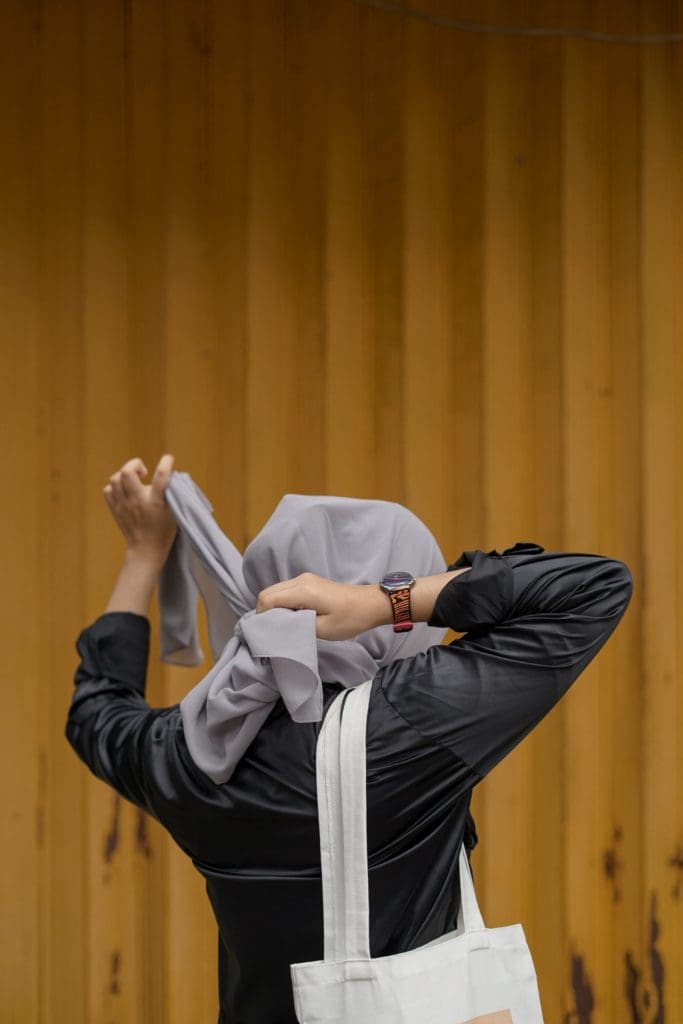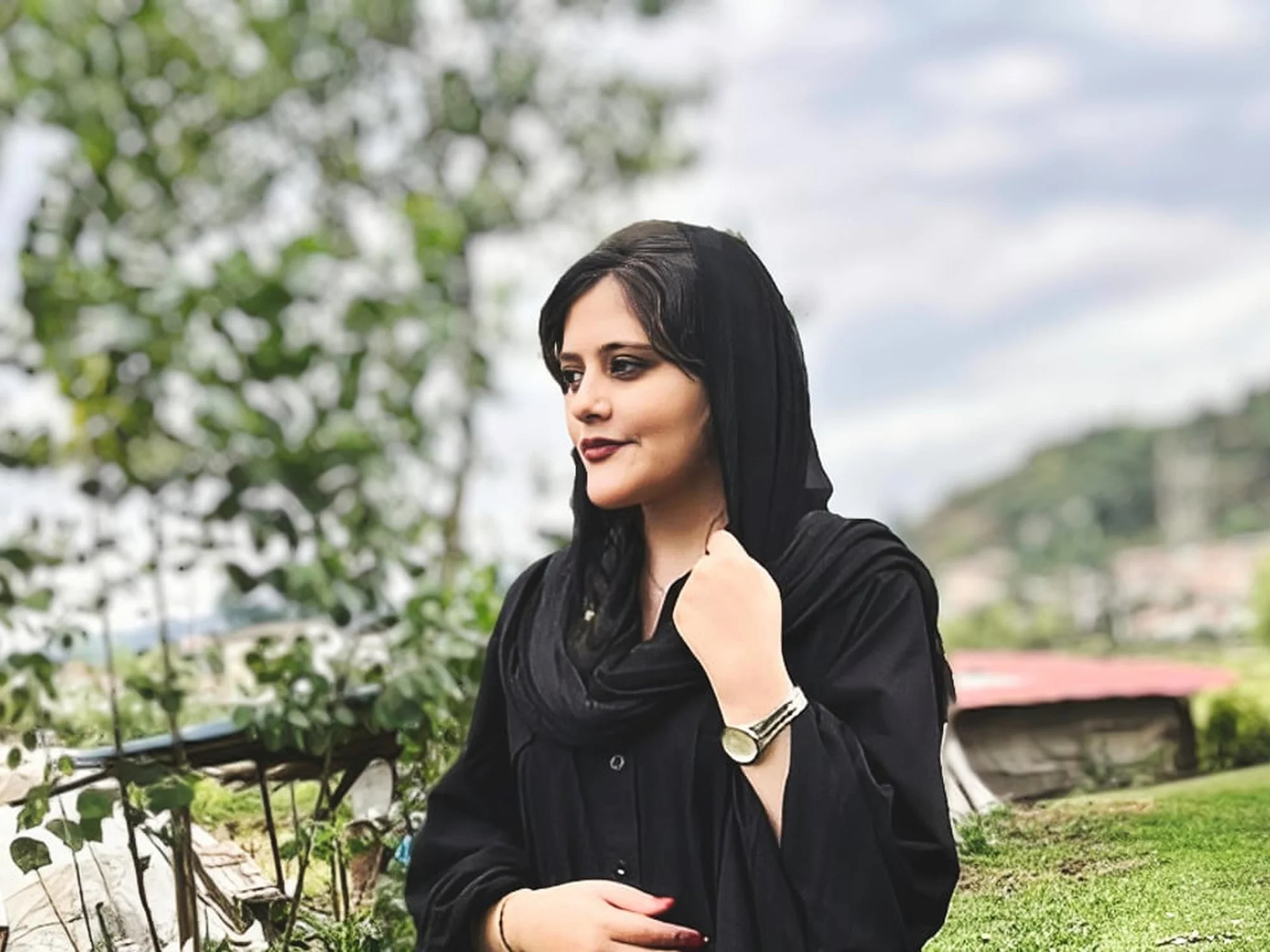The death of a young Iranian woman, Mahsa Amini, following her arrest for “improperly” wearing her hijab, has sparked an uprising of protests in that country regarding women’s treatment and rights. We spoke with Vancouver-based podcaster Mahsa Di Placito to learn more. —Noa Nichol

Hi Mahsa; please start by telling us about your personal connection to Iran.
I was born in Tehran, Iran, and immigrated to Vancouver in 1986, when I was four-years-old. My parents both come from very large families, and most of them immigrated to Canada in the years following the Islamic Republic coming into power in 1979. My mom’s youngest brother was arrested by the Islamic guard for possessing a newspaper that promoted freedom and denounced the Islamic Republic. Shortly after his arrest, he was executed. The youngest of nine children, he was only 18. Every family who has immigrated to Canada has their own story, but for our family, we knew it wouldn’t be safe as long as the Islamic Republic stayed in power. Like many immigrant stories, my parents gave up everything so we could live a free life in Canada. For that, I’m very grateful.
What is happening in Iran right now? Why is it important?
What we’re seeing in Iran right now is the biggest human and women’s rights movement the country has seen. The Iranian people have fought back before, often paying for it with their lives, but the scale of this revolution is unprecedented. As you’ve probably seen all over social media, a young Kurdish woman, Mahsa Amini, 22, was arrested by the morality police on September 13, 2022, for not wearing her hijab “correctly”. She was taken to prison where she later died of reported organ failure and cardiac arrest. The Iranian government has absolved itself of responsibility for her death, claiming they had nothing to do with it and suggesting it was the result of pre-existing medical conditions. Meanwhile, there is CCTV footage of her collapsing shortly after being detained and witnesses that saw her being severely beaten by the police. Her family demanded answers and it sparked global outrage. There have been worldwide protests with the hashtag #mahsaamini trending. The Islamic Republic has been murderous in its response; firing on citizens in the streets, and going into schools where they have arrested, beaten and killed children.
What makes the current situation a tipping point?
People just learning of the situation in Iran need to realize Mahsa Amini’s death was not a one-off, or unusual. Many people have died at the hands of the Iranian government before her, and many since the revolution started. The Islamic Republic is relentless in their violence. It’s hard to say exactly why this particular incident was a tipping point, but I think it’s partly because of the way we are using social media to advocate for social justice. Take for instance the death of George Floyd; he was not the first Black American man to be killed by police, but his death triggered a movement where people started to demand change, and that movement was sustained and amplified through people sharing on social media. In speaking with my Iranian friends who went to University in Iran and have deep roots there, the sentiment is that the younger generation feels they’ve gotten to the point where it seems hopeless. It was either live under this very limiting regime, or quite literally, fight for their lives. The bravery I’ve seen of women walking the streets of Iran in protest without their hijab is incredible. At this point, the Islamic Republic knows who they are, and they most certainly have a list of names and surveillance; I believe the Iranian people are very aware that they need to keep the fight up.
Are there any misconceptions that should be cleared up?
So many! Thank you for asking this question because it’s so important. There are a few common misconceptions that I’m seeing everywhere; the first being that the revolution is about the hijab. Yes, that’s a small part of it, but it really ties back to the most basic of human rights and autonomy, particularly for Iranian women who are incredibly repressed. Yes, it’s legally required that they wear a hijab and dress modestly, but they are denied the most basic of human rights. For example, women aren’t allowed to divorce their husbands unless it’s under an extreme circumstance like he’s been imprisoned, they aren’t allowed to travel without written permission from their husband, and they forfeit child custody if a divorce is granted. It’s about freedom, and the head covering is a small part of that. Secondly, being Muslim is not the same as being an Islamic Fundamentalist, which is the extremist religion under which the regime rules. It would be like comparing being any sort of Christian with the most extreme and limiting version of Christianity. One does not constitute the other. My late grandma was a devout Muslim, who wore a head covering by choice. She also vehemently believed in freedom and denounced the Islamic Republic. Lastly, Iran hasn’t always been this way. I remember looking at photos of my parents growing up in Tehran through to the end of the 1970s, and if I didn’t know it was Iran, it could be anywhere. They were in bell bottoms, lower-cut tops, hair freely flowing. The change was very sudden and a good example of the fragility of freedom.
Without intending to sound glob, why should the rest of the world care about this particular matter?
I get it, we are inundated with so much despair on social media and doomscrolling that part of our coping mechanism is probably to desensitize a little. We’re all human. I think it’s important to put into context that the people on the ground fighting in Iran have no access to internet right now. They have no way to spread their message, to relay info on what’s happening, or to even check in on whether the world is supporting them or cares. Particularly being a Middle Eastern country, the reality is that media and support doesn’t come as easily to them as it would in other, more westernized, places. That’s the stark reality. Personally, I haven’t seen much online support compared to other movements. People tend to shy away from it, perhaps because they don’t totally understand it, but all you need to know is they are fighting for the same freedom and basic human rights afforded to us here.
What can we do to support?
There are so many ways! Firstly, just learn about what’s happening. Take time to educate yourself on what the revolution is about. It’s not just the hijab. Share! If you see a post or news article that resonates with you, share it on your social media channels. Whether you have 10 followers or 10,000 followers, it’s up to us to amplify the voices of the Iranian people since they can’t. Sign a petition! This petition couldn’t be easier to use, as it fills in the contact info for your MP’s simply by putting in your postal code and auto emails them. If you’re able to, donate to a worthy cause like this Go Fund Me that aims to raise visibility for crimes happening in Iran. Check on your Persian friends! Ask them questions, let them know you are with them.
Stay tuned for an upcoming episode of Mahsa’s podcast, Have You Heard About, that will take a deep dive into this issue.

Be the first to comment